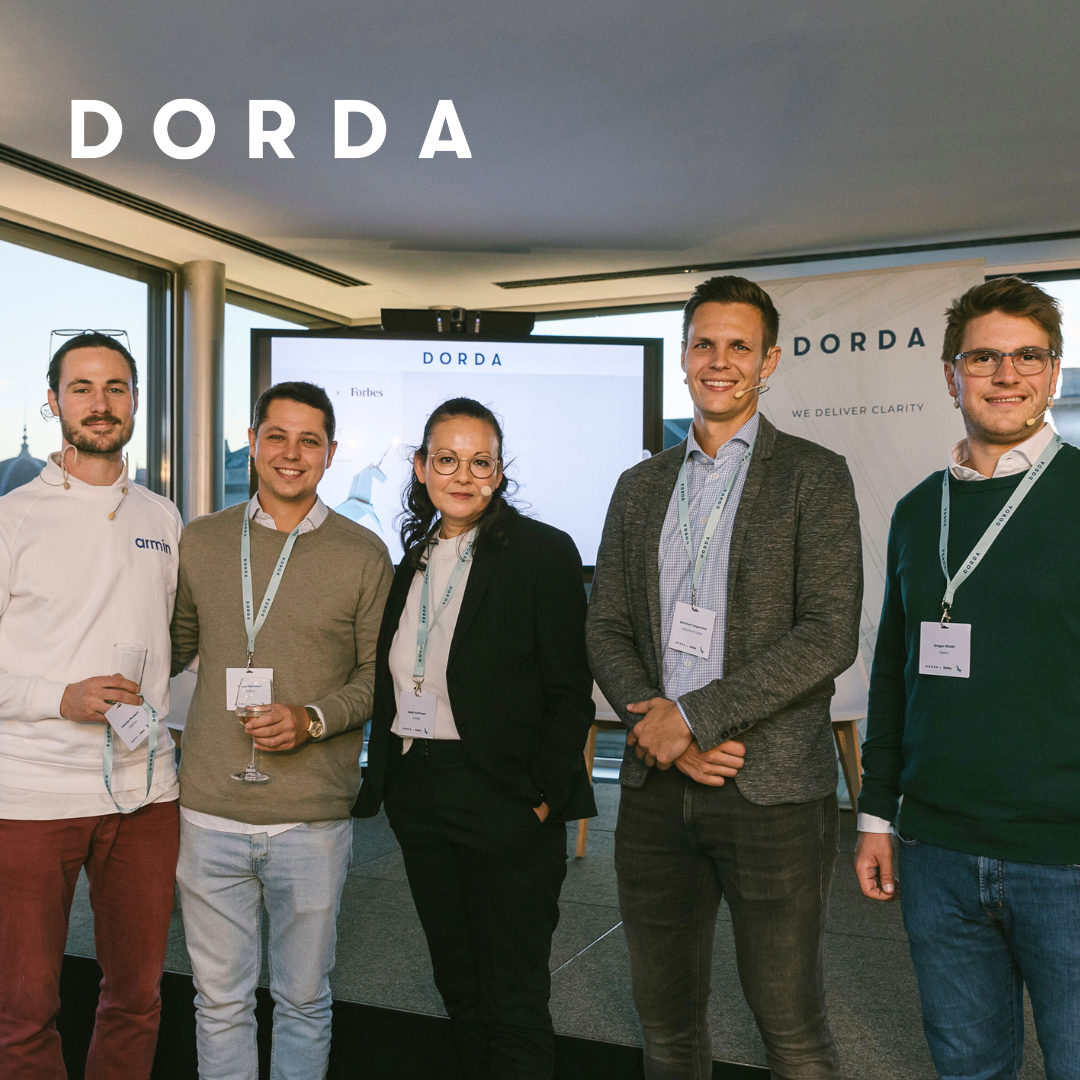More than 80 participants joined DORDA x Forbes Event “When unicorns become extinct – challenges for start-ups” on the evening of September 26. Founders, investors and industry experts discussed the challenges that young companies face today.
The starting point for start-up founders today is different than it was ten years ago. The golden days of rapid growth and lavish financing are over – accordingly, there is a great deal of uncertainty in the scene. The cooling economy and an increasingly cautious venture capital industry are forcing founders to break new ground. Lukas Herrmann, head of DORDA's Start-up Group, comments: “Times are getting harder and harder for young companies. The once clear formula – founding, financing, growth – is reaching its limits and the days when investors were willing to finance any project, no matter how risky, are over. This new reality is forcing start-ups, but also investors, to adopt new strategies.”
The result: start-ups are growing more slowly and have to fight harder for each round of financing. At the same time, bootstrapping, i.e. doing without external capital, is becoming more important. Founders are increasingly prioritizing independence and want to retain control over their company.
Gregor Kleibl, CEO of digital pawnshop Cashy, Johannes Mansbart, co-founder and CEO of digital marketing agency Chatarmin, and Bernhard Ungerböck, principal at the angel investor network eQventure, took to the podium to discuss the new challenges in the start-up landscape from their various perspectives. And quite controversially so. The discussion was moderated by Forbes publisher Heidi Aichinger.
Based on the question of how start-ups can finance themselves in the future, a lively discussion immediately ensued. In addition to traditional VC financing, alternative financing models such as crowdfunding and revenue-based financing were discussed. While Gregor Kleibl was of the opinion that certain start-ups require external financing from investors and business angels, Johannes Mansbart was of a completely different opinion: “An investment is not a success,” said the founder of Chatarmin, who is a vehement proponent of bootstrapping. An exit cannot be the goal of a start-up, he said. Gregor Kleibl agreed with this to some extent, but added that every founder should already know how to make money as part of the development of the business idea and that, depending on the business model, investments must be explored accordingly. Of course, as a pawnbroker, Cashy would have had to get the money to lend from somewhere else first, he replied to Mansbart.
No investor would give money at a venture anyway, Bernhard Ungerböck intervened in the conversation – today even less than ever before. And a dilution of one's own business shares by taking in VC investors – this was also hotly debated – should always be considered relatively. e-Qventure, he said, sees itself as a network of former entrepreneurs here anyway more in the role of a sparring partner for the founders. In the areas in which his investor network is active – primarily tech and health tech – investments are often an absolute necessity. The current difficult economic situation is also tough for experienced investors – not least because the war in Ukraine is making it considerably more difficult to access urgently needed resources, for example. The industry has to adapt to the changed conditions. According to Ungerblöck, megafunds are becoming rarer, while the focus on sustainable investments is becoming more important.
The panelists ultimately remained conciliatory: founders must learn to be more flexible and to break new ground. At the same time, the current situation also offers opportunities: companies that focus on their strengths and develop sustainable business models have a good chance of success. Similarly, financially strong investors can currently go on a shopping spree and acquire stakes anti-cyclically.
